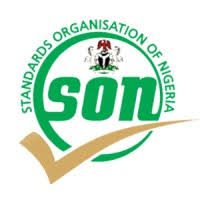
FG targets N553bn from petroleum unremitted shipping taxes
By Seun Ibiyemi
The Federal Government says it intends to recoup over N553 billion unremitted taxes from international petroleum shipping companies operating in Nigeria.
The Director, International Tax, Federal Inland Revenue Service (FIRS), Mr Abdullahi Aliyu, said that recouping the sum which accrued from 2010 to 2019 would help address the nation’s budget deficits.
Aliyu said with the country’s overall budget deficit of N11.34 trillion, the N553 billion unremitted taxes represents 5.03 per cent and would be an alternative to addressing Nigeria’s economic woes instead of borrowing.
He said this while speaking at a virtual summit organised by the Nigerian Chamber of Shipping (NCS) on Wednesday with the theme; “Sensitising the Nigerian Maritime Industry on the New Tax Policy and Objectives.”
Aliyu, however, noted that shipping companies involved in dry cargo activities in Nigeria and foreign airlines had been complying with the tax laws that most operators in the oil sector had neglected.
“The onus is on global businesses to understand the local laws and taxation in the countries where they transact business, and these specific laws have been in place in the nation for decades. “Nigerian taxes are more favourable to non-residents compared to indigenous companies, thereby creating an unfair business environment for local operators,” he said.
In his paper presentation, the Assistant Director, Tax, FIRS, Mr Oluwole Oni, pointed out that the agency had advertised the planned taxation exercise in December 2021 to prevent disruptions in the essential global shipping business.
“Non-resident vessels earn freight income from transportation services provided in transporting petroleum products (crude oil and gas products) from Nigeria to the agreed location, outside of Nigeria.
“Irrespective of the commercial arrangement adopted by the non-resident vessels to lift crude oil from Nigeria, freight income attributable to Nigeria is taxable in line with the Companies Income Tax Act (CITA),” he said.
Oni said that the FIRS had written officially to operators who owed taxes for the period between 2010 and 2019, adding that the companies were expected to send in their responses within 30 days.
“Those who received the letters are expected to send in their responses which aren’t only about payment. The response can be an acknowledgement of receipt, a demand for clarification, payment.
“The first step to compliance is registration with FIRS and most operators are yet to register,” Oni said.
The Senior Advisor for Shipping Policy at the ICS, Georgia Spencer-Rowland, stated that communication on tax regime was not properly carried out as most members of ICS were oblivious of tax framework.
She noted that members of ICS comprised over 80 per cent of the world’s merchant ships and 40 national ship-owners associations.
Oni, however, encouraged FIRS to clearly communicate in an official document, the period allotted as grace period for the tax implementation.
“Do these taxes affect inbound or outbound ships? Are the taxes payables on freight, income or profits? “Will ICS members as stakeholders be allowed to participate in the Presidential Technical Committee ahead of the implementation of these taxes?” Georgia asked.
Meanwhile, the Legal Counsel to INTERTANKO, Ms Selena Challacombe, said that the figures and volumes quoted by FIRS for taxation were not the actual figures in the transactions carried out by INTERTANKO members.
Challacombe said that there could be challenges in recouping taxes with the figures for 2010 to 2019 as ship charterers are unlikely to provide the vital information seen as germane to their businesses.
She said the situation should not be termed tax evasion when the alleged violators had not profited from the negligence of taxes they never knew existed.
She added that Australia had a similar law enacted since 1936 and members of INTERTANKO factored in the taxes when undertaking contracts for Australia.
In his welcome remarks, the President of NCS, Mr Aminu Umar, stressed the need for collaboration among stakeholders and government agencies for a smooth implementation of taxation.
Umar said the chamber was willing to partner with government to collect revenue for national sustainability, adding that there must be collective input to rightly shape the shipping sector and encourage investments.
He described the Presidential Technical Committee for the implementation of taxation as an ideal avenue for collaborations between local and global shipping operators and government agencies to advance the nation’s maritime sector.
Reports that FIRS draws its legal backing from Section 14(1) of the Companies Income Tax Act (CITA), titled “Companies engaged in shipping or air transport”.
The act states: “Where a company other than a Nigerian company carries on the business of transport by sea or air, and any ship or aircraft owned or chartered by it calls at any port or airport in Nigeria, its profit or loss to be deemed to be derived from Nigeria shall be the full profits or loss arising from the carriage of passengers, mails, livestock or goods shipped or loaded into an aircraft in Nigeria.”
Stakeholders at the summit, the International Association of Independent Tanker Owners (INTERTANKO), ICS, indigenous ship-owners, tax experts, among others called for more clarity and time for operators to understand the Nigerian tax regime.
The global bodies also claimed that their members were not aware of the tax provisions and public notice given by FIRS, and expressed fears on Nigeria’s insistence on recouping taxes on previous transactions between 2010 and 2019.
Other dignitaries at the summit included the President of Ship Owners Association of Nigeria (SOAN), Dr Mkgeorge Onyung; Vice President of NCS, Ify Akerele; President, Nigerian Shipowners Association (NISA), Mr Sola Adewumi; among others.



